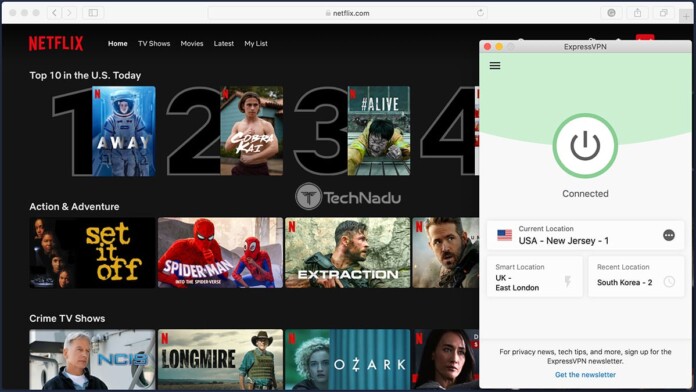


Below are a few more advanced VPN options that can be helpful. Those are the key features that all VPNs need in our opinion, but there are a few other things to look out for when you’re shopping as well.

If your VPN service is interrupted, the kill switch will flip, terminating your internet connection ensuring that your true IP address is never exposed. Some kill switches are built-in while others can be toggled on and off through the VPN’s settings, but the end result is the same. Kill Switch: This is a must-have feature in our opinion.Surfshark is one of the VPNs we’re talking about here. If privacy is really important to you - and it should be, you’re considering a VPN after all - look for privacy-minded jurisdictions like Switzerland and the British Virgin Islands. Different countries are beholden to different data-sharing agreements with national and international law enforcement agencies. Privacy-Minded Jurisdictions: Make sure you take a look at where the VPN service is headquartered, as well.Even if they wanted to violate their no-log policy, the data that could be collected simply doesn’t exist. Since these machines don’t use hard drives, nothing is ever physically recorded. Here’s a short list of public places you definitely don’t want to go unprotected at:Īnd here’s a quick tip: if you want to find the best VPN for your mobile devices, check out our guide to the highest-rated VPNs for iPhone, or the top picks for Android.įYI: RAM-only servers, like those we saw in our Surfshark analysis, are pretty much the gold standard of server security. There are tools made specifically for harvesting data off public networks, so you should take every measure to safeguard your digital privacy. Coffee shops, cafés, restaurants, and hotels are all great places to get some work done on your laptop or mobile device, but you never know who is operating the public Wi-Fi networks found there, nor are you aware of who you’re sharing the network with. Be sure to check the terms of service you agreed to when you signed up before VPN-ing somewhere you shouldn’t.Īnother reason someone might use a VPN is to stay safe on public Wi-Fi networks. We’ll talk more about encryption in a little bit.įYI: While it’s not illegal to use a VPN in order to make it seem like you’re in a place you’re not, doing so to bypass geo-restrictions is generally frowned upon by the service that imposed them. Encryption: This scrambles the data in such a way that only the intended end point service can put it back together in a meaningful way.This makes it harder for prying eyes to read your data while it’s traversing the internet. Tunneling: Tunneling is a process in which each packet of data is protected inside other data packets.No one can determine your real IP address or location. Proxying: The VPN acts as a stand-in for your online activity.Authentication: Authentication is a mathematical process that allows the VPN client and the VPN server to ensure they are communicating only with each other, and no one else can listen in.This process works through four key concepts. Additionally, websites can no longer view your original IP address, only the IP address of the VPN server, which is shared with others and changes dynamically. Your traffic still passes through the ISP, but they can no longer view it or know your final destination because of encryption. When you’re using a VPN, though, the client establishes a secure connection to one of their servers first.

The ISP assigns your computer a unique number, known as an IP address so that the website and the ISP can identify you. With a traditional internet connection, whenever you visit a webpage, you are being connected to that site through your internet service provider - or an ISP. We promise this isn’t as complicated as it sounds. To understand how a VPN works, you first need to understand a little bit about the architecture of the internet.


 0 kommentar(er)
0 kommentar(er)
